(Photos by Amy Lauren Gettys)
Written by Alina Mae Wilson
Ladies and gentlemen, the apocalypse has occurred. Doomsday has come. Let chaos and sorrow reign. In Mr. Burns (playing at the Costa Mesa Playhouse), millions are dead, whole cities are abandoned, and electricity is a thing of the past. So what is at the forefront of everyone’s mind? The Simpsons. It’s actually not that surprising that survivors of a mass tragedy would steadfastly cling to pop-culture references familiar to so many people. What IS a bit startling is an evolution of such a reference, the gradual change from a mere source of entertainment to a mythology that only loosely resembles its source material.
So the apocalypse has happened. People are lost, lonely, and searching for vanished loved ones. Out in the

Photo by Amy Lauren Gettys, Tara Pitt, Emily Lappi, Craig Jackman, Amanda Byrdie, Jessie Wise, and Troy McLure.
forest, a group of survivors confirm that large states like California are verifiable ghost towns. It’s not all grim, though, because they spend most of the first act sitting around trying to piece together an entire Simpsons episode. A new person joins their little band, and through his introduction, we learn about the rules and expectations of this contemporary society. Later, the group uses their general knowledge of The Simpsons to entertain others and make a living. Gradually, in their minds, the cartoon becomes mythic.
The set (designed by Tucker Boyes) is highly successful. The simple-yet-effective backdrop hosts such settings as a forest and a graffitied wall. Occasionally bars will be set up to convey a transfer to a boat, and it looks very believable. Although it might have been the easiest to depict, I think my favorite setting is the one in the forest. Its large, green leaves with soft edges almost remind me of a child’s painting. The wall with graffiti is bright and colorful and successfully puts an up-tick in the mood. The props used by the actors to tell their own stories are appropriately goofy looking and just the kind of thing one might expect in the low-budget circumstances the characters find themselves in trying to do their re-enactments. It’s as delightfully cheesy as watching children at a summer camp performing a skit with items they found in their bunk, and it works especially well with the zesty performers.
All of the actors in this show are terrific. They look invested and real the entire time. If there were any missteps on the night, I was there. They covered them beautifully. Energy levels are sufficiently high and

Photo by Amy Lauren Gettys Phil Neato, Tara Pitt, Brian Pirnat, Craig Jackman, and Brooke Lewis.
everyone onstage is sympathetic. Special mention of the night goes to two players: Phil Nieto as Gibson and Brooke Lewis as Maria. Don’t get me wrong, the first act is slow as all heck (we’ll get to that in a moment), but things get fractionally more interesting when Nieto shows up as Gibson. The tension he displays is so raw you wonder for minutes about his motives and what exactly is going to happen to him. He is instantly one of the most likable people in the story, whether he is startling you with a booming voice or winning you over with his gentle demeanor. The other half of the duo is Brooke Lewis, who plays Maria and, later on, Bart Simpson (she does a pretty good job with the voice, by the way). As Maria, she appears to be kind and sympathetic to her fellow travelers, and in times of stress, you feel for her. It is a nice break from the previously mentioned frustration. This leads me to my main issues with Mr. Burns –the direction and the story.
Act one had me squirming like a toddler in church. I mean, for the love of all that is good and holy, MOVE. Walk around, drop a pencil, pick it up, just do something. I realize people love The Simpsons, and the idea of people quoting lines from the show to each other after the-end-of-life-as-we-know-it is humorous, but it’s nowhere near as humorous as the director seems to think it is. They sit around in a semi-circle, trying to remember quotes from the cartoon. Their nostalgia is interrupted briefly for some tone-setting, and then it’s right back to the quotes. Watching characters struggle to remember lines from a show and sitting in place almost the entire time is just not interesting. It’s less exciting than watching someone else play video games. Except when you watch someone else play video games, you can root for them. Since there is no real antagonist in this story, we mostly watch someone else’s scenario of “I wonder what would happen if we didn’t have television anymore.” Maybe the actors needed to conserve energy because Act two has them moving nonstop. The politics of their actions and why is only slightly compelling because there is still no antagonist or definitive goal. It’s just survival. I suppose that is a valid thing to explore, but it isn’t very gripping. Act three is depressing and weird, but it’s not dull, so it’s a definite upgrade.
December 1 – 16, 2017
Above Average
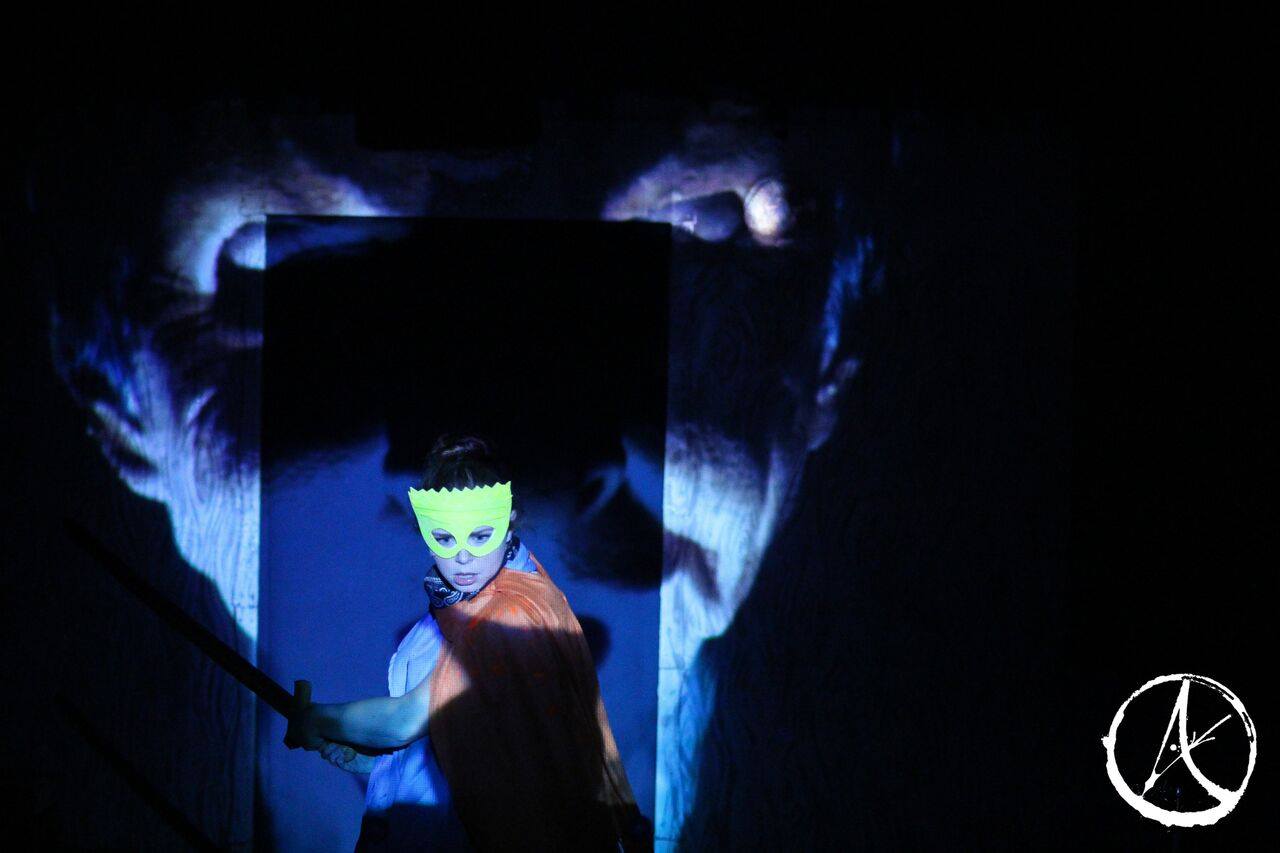


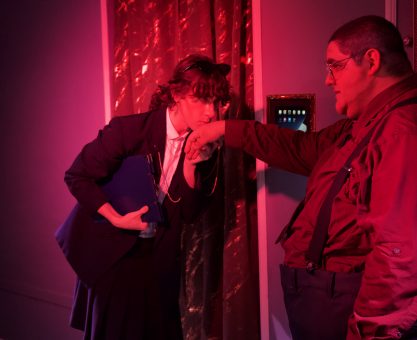
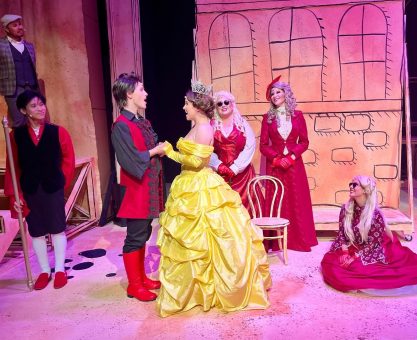
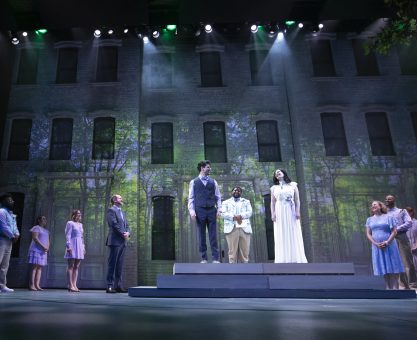


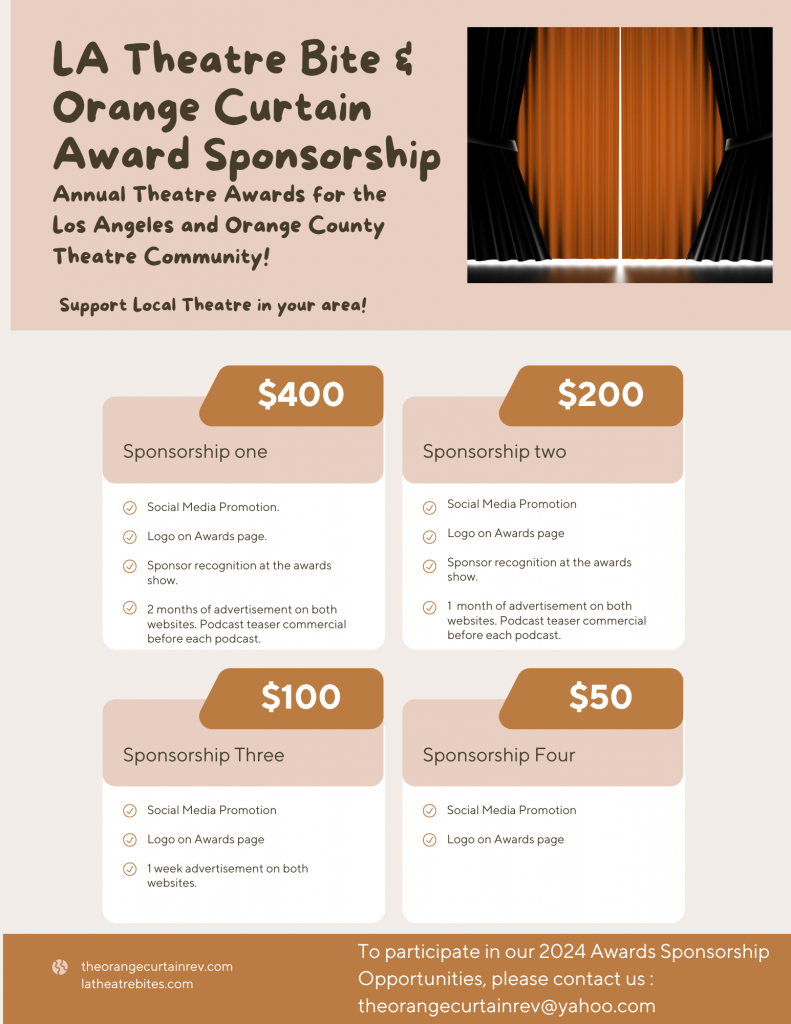



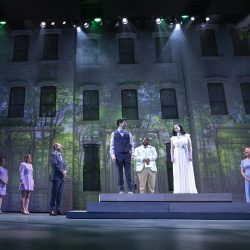
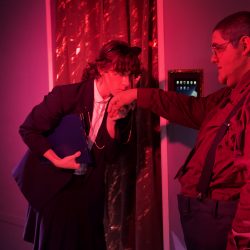
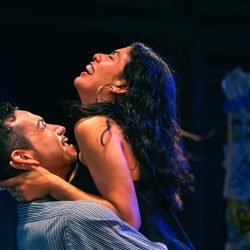

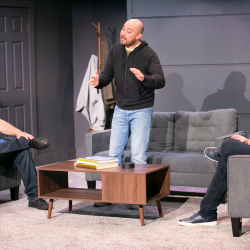

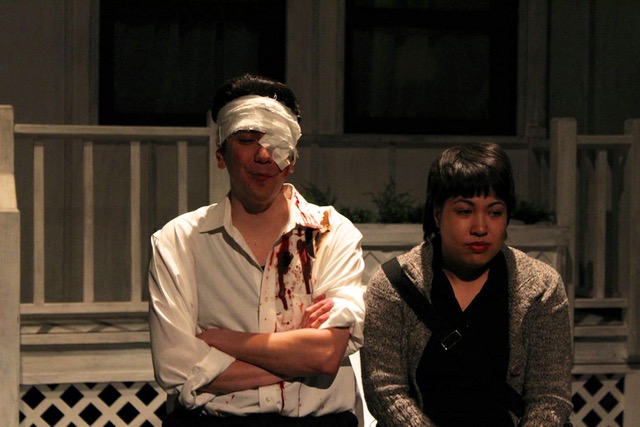
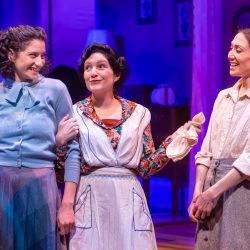
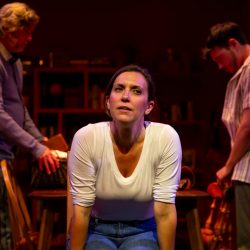
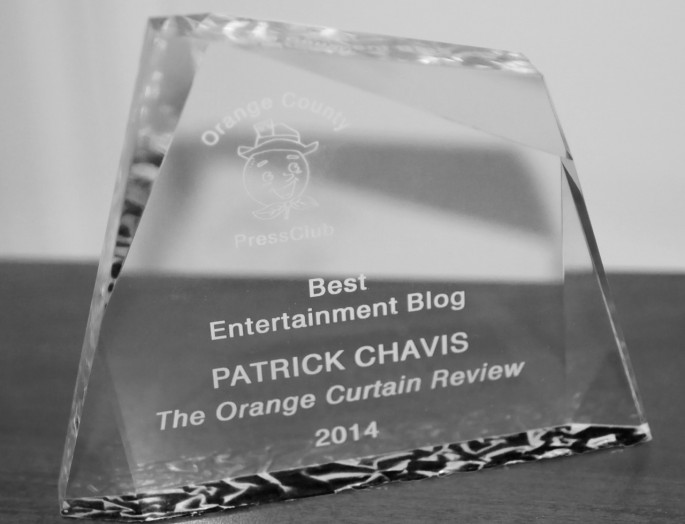
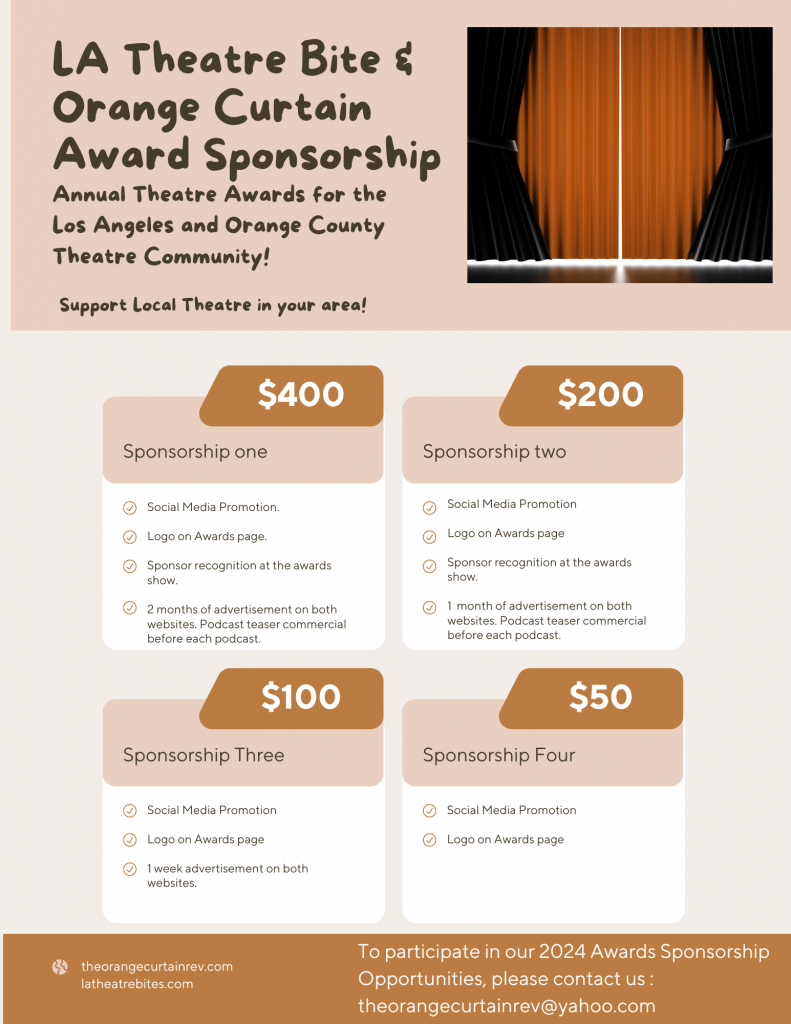




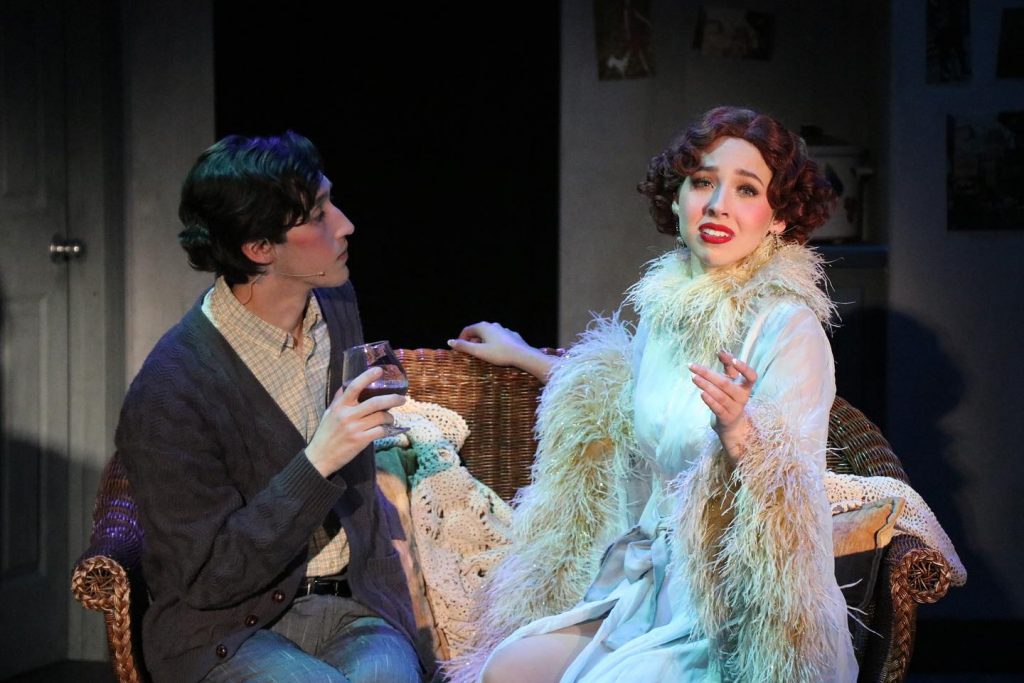
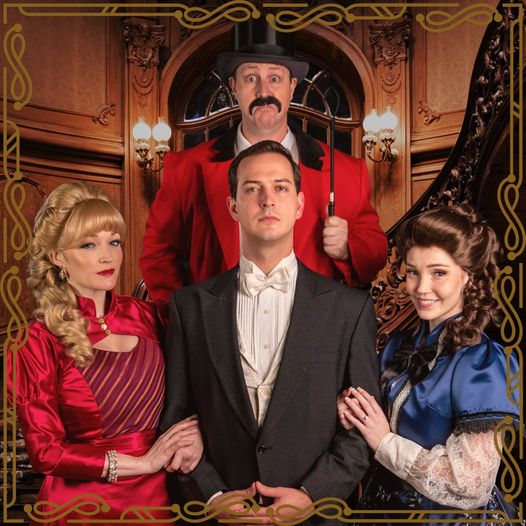
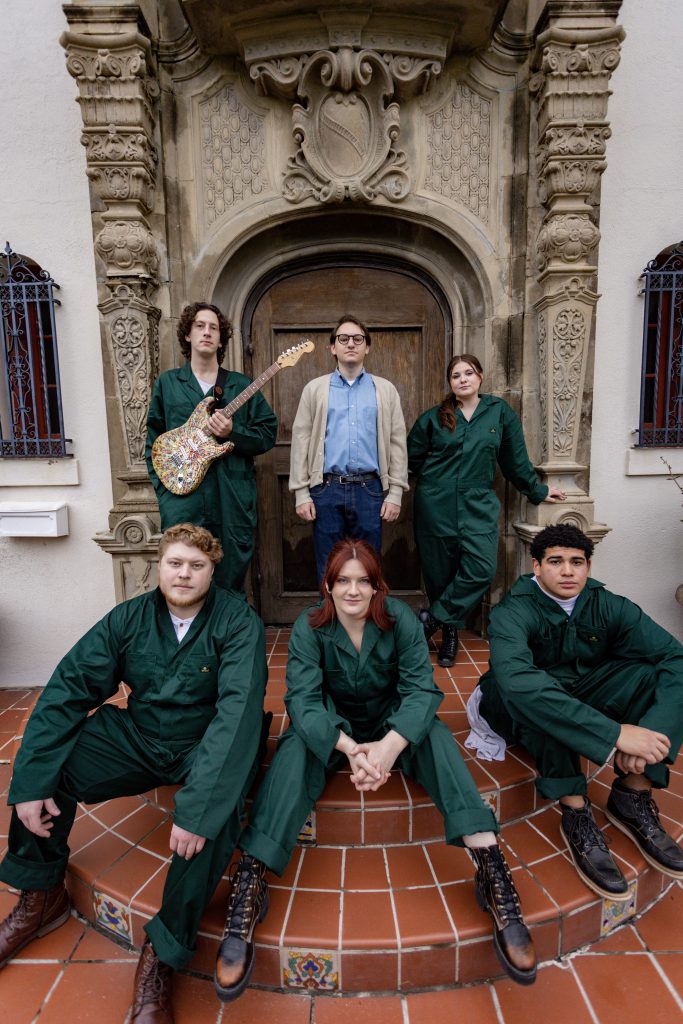
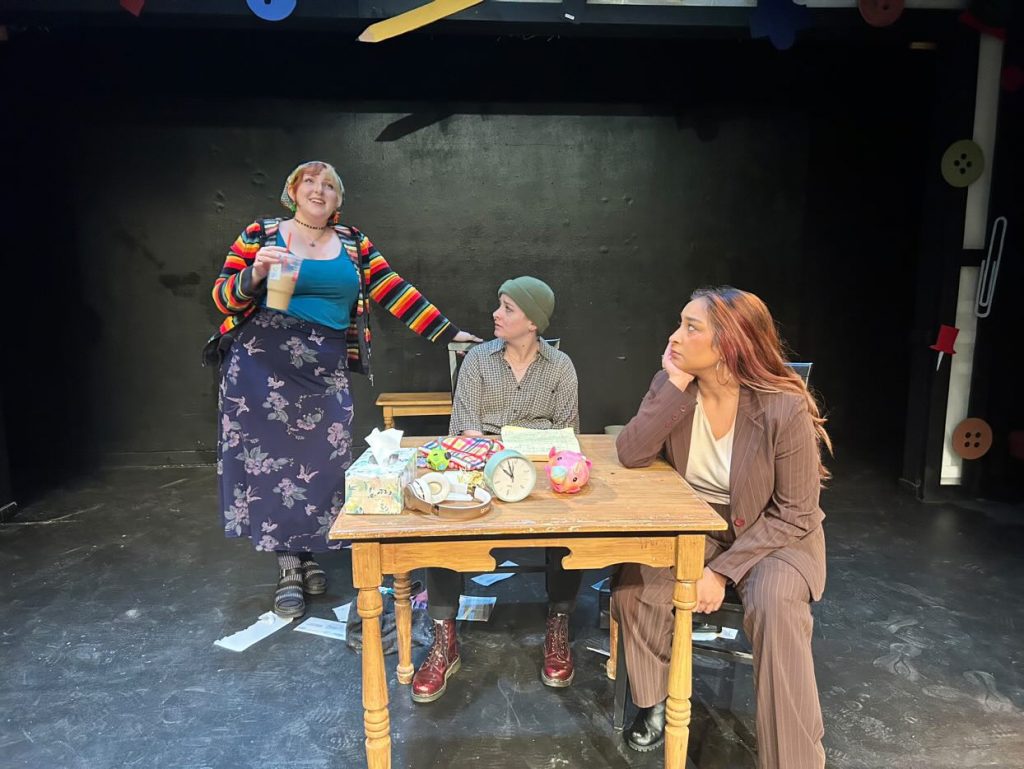
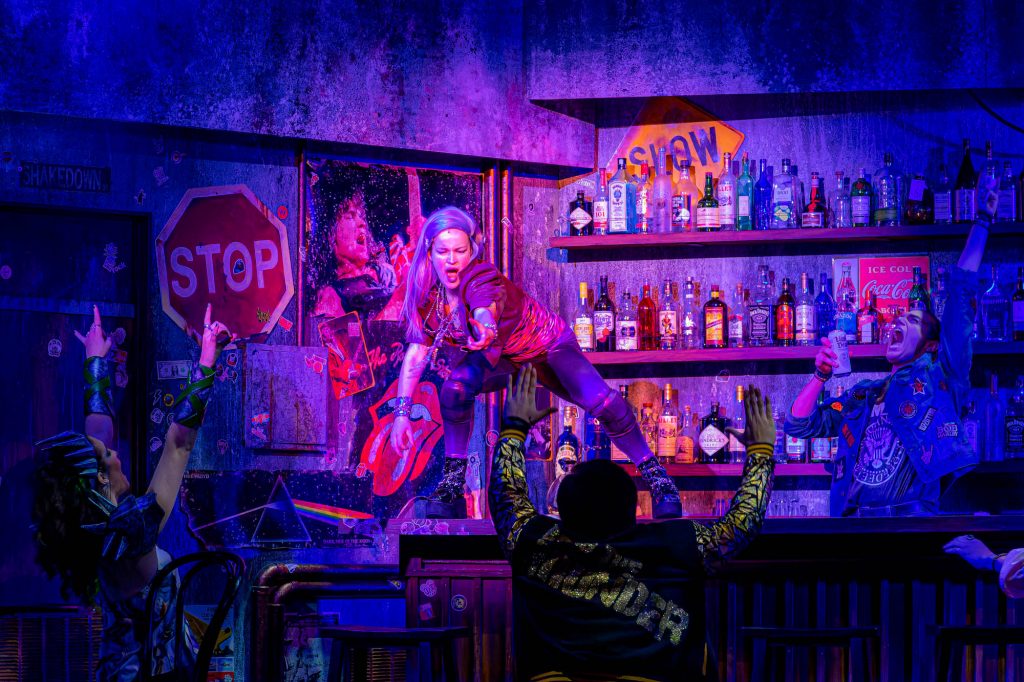
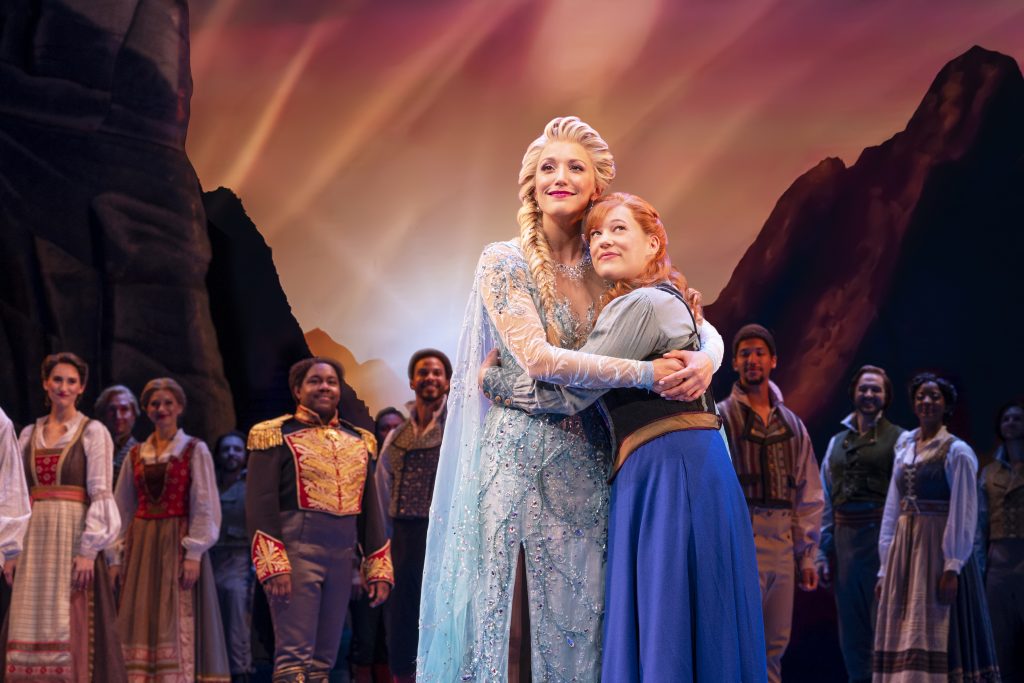

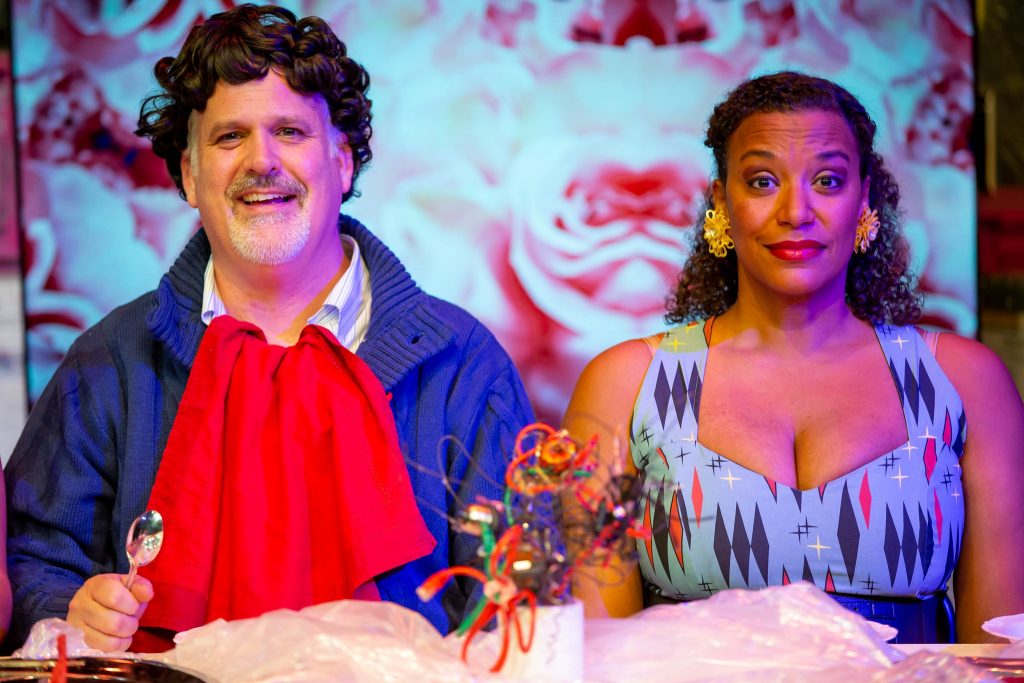

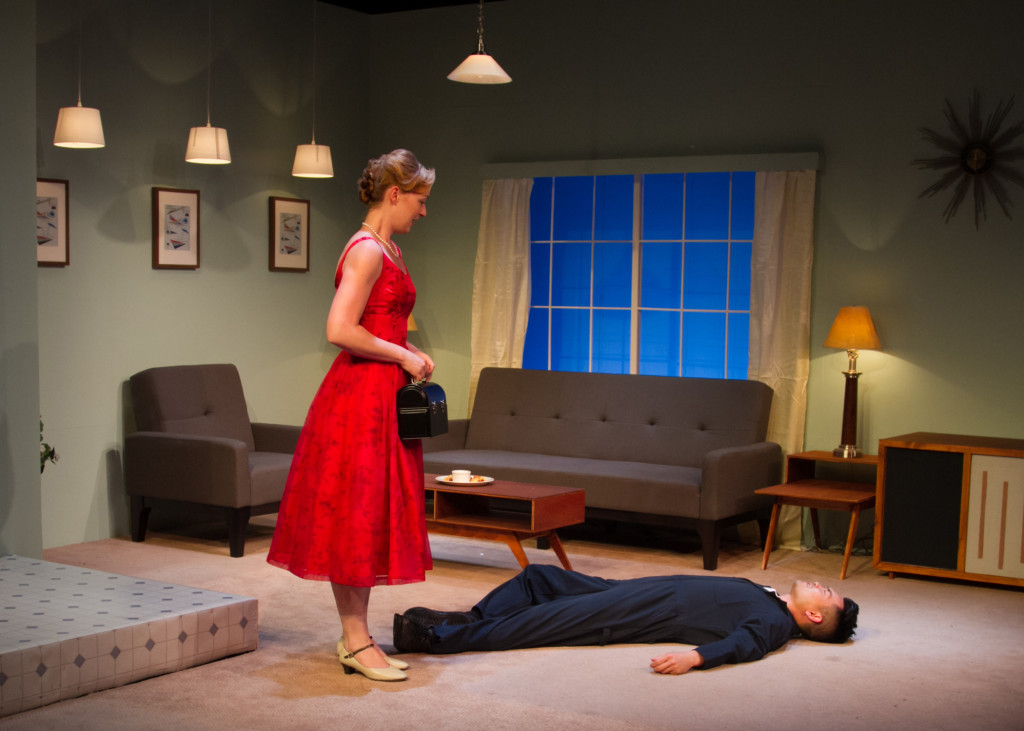
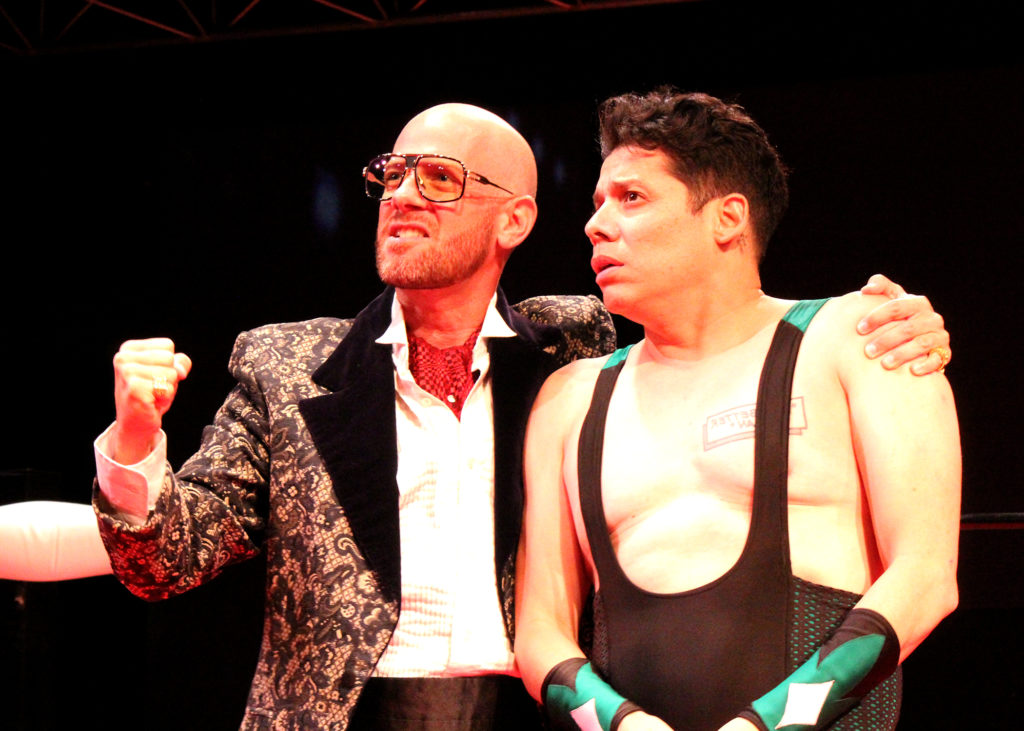
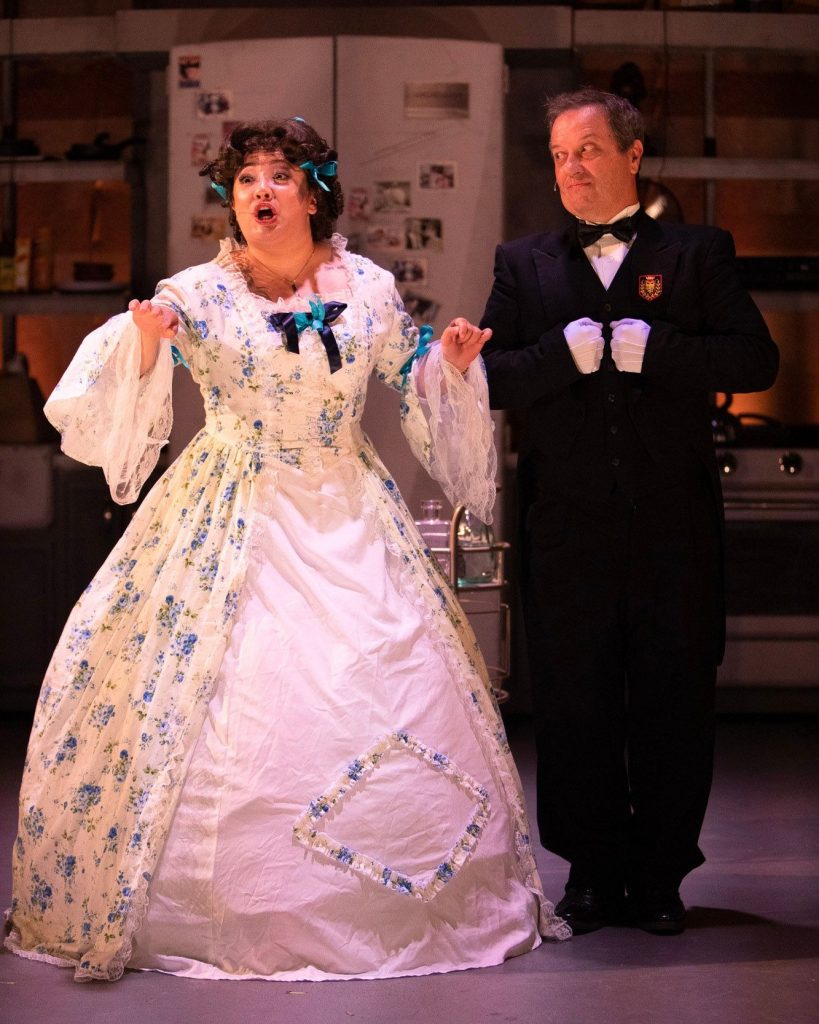

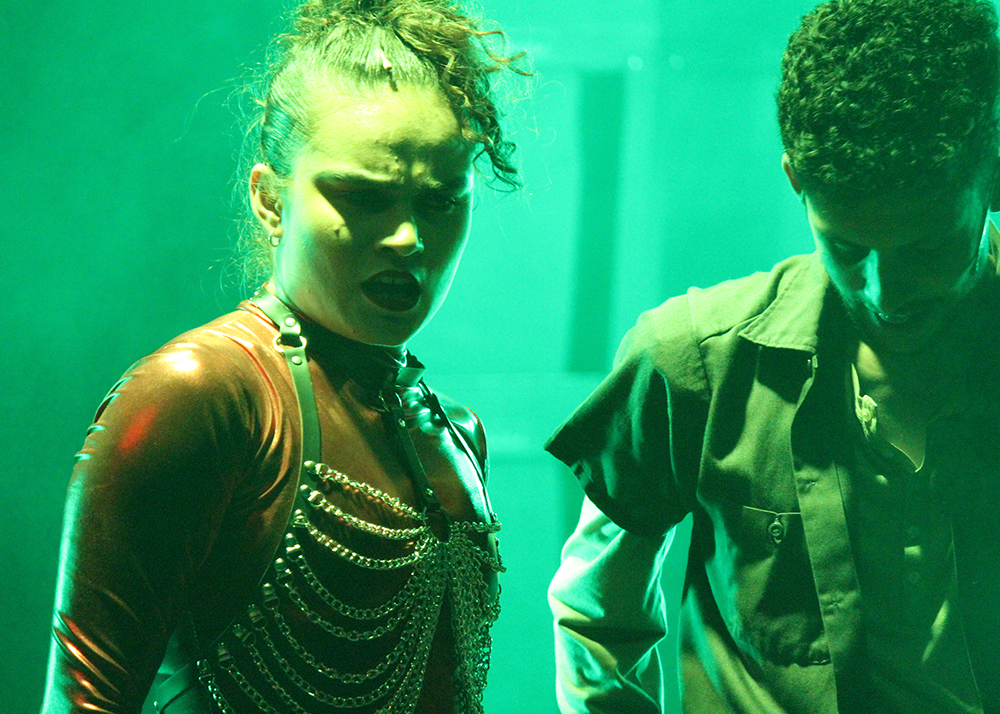
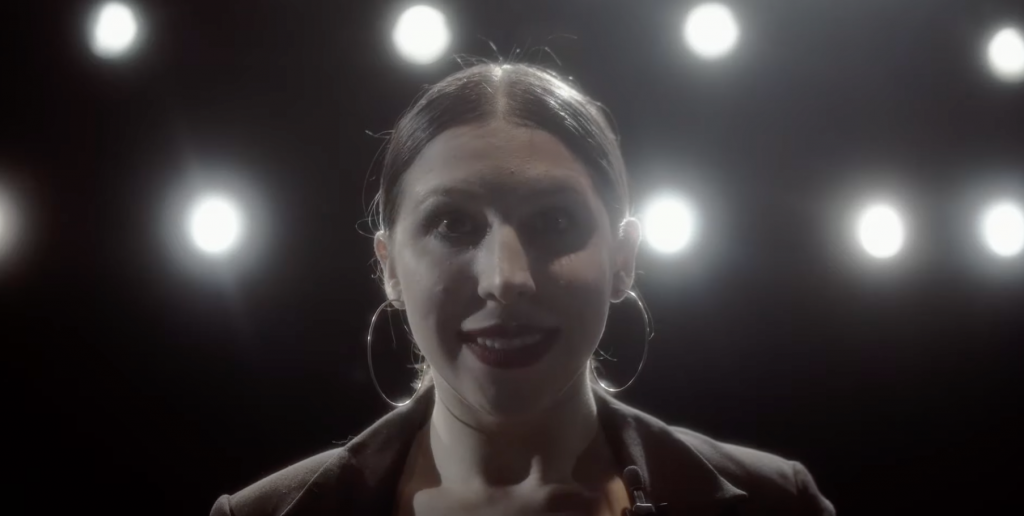
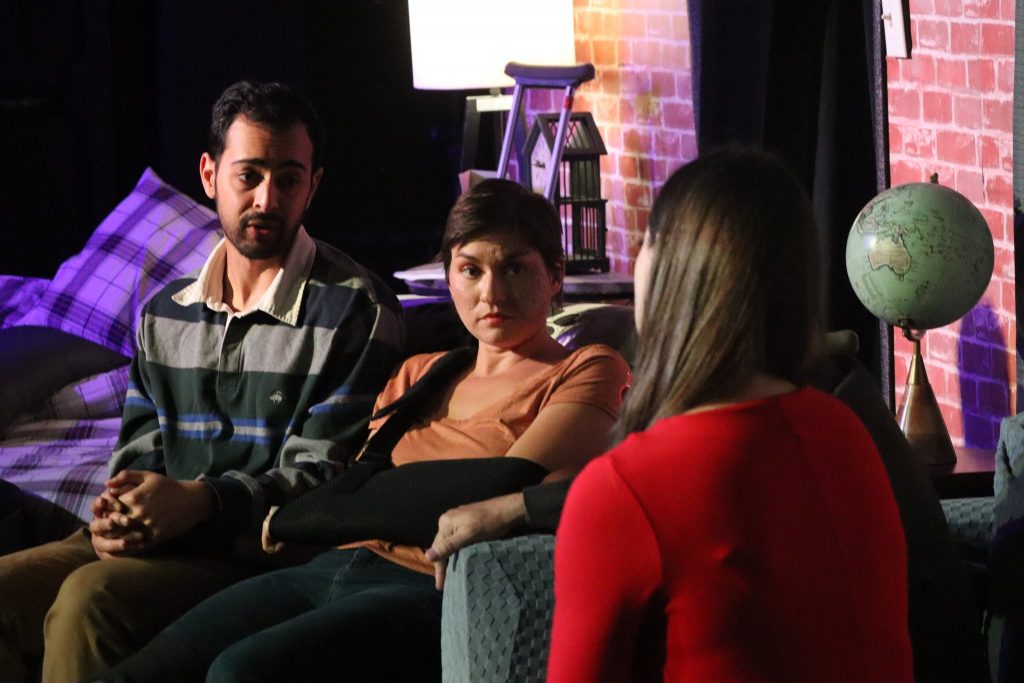

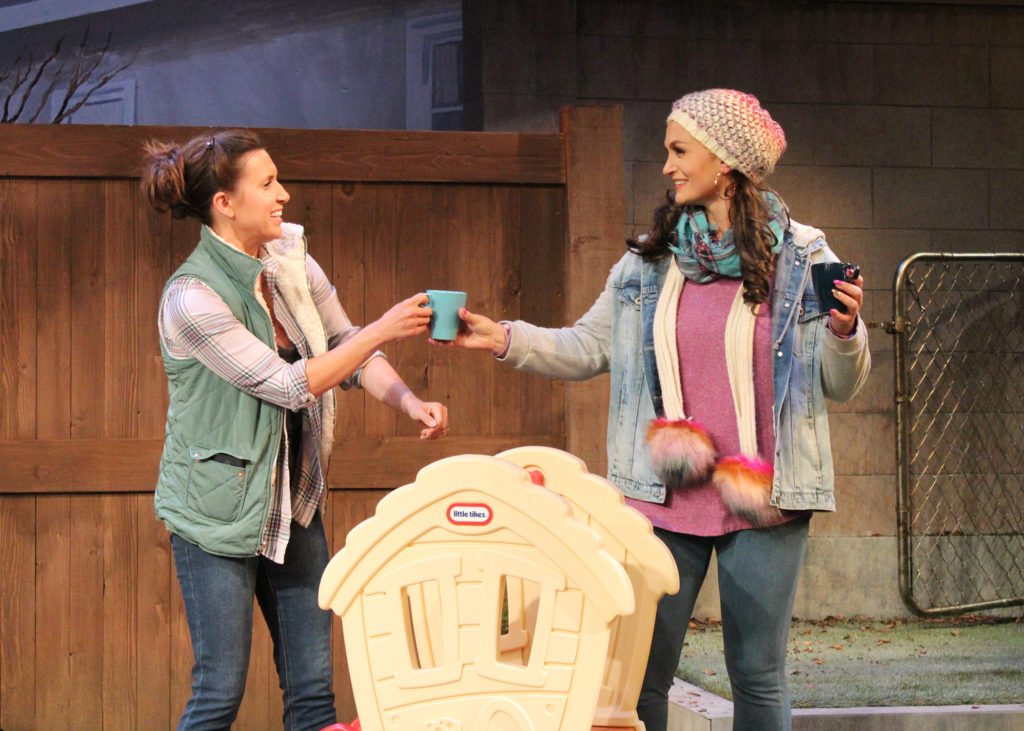
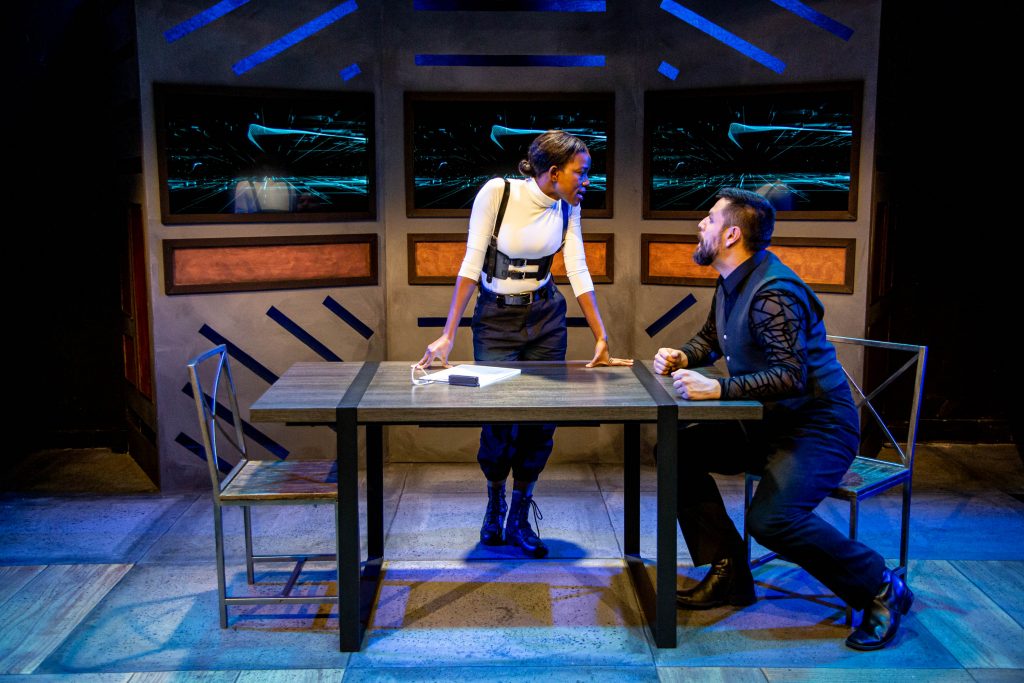
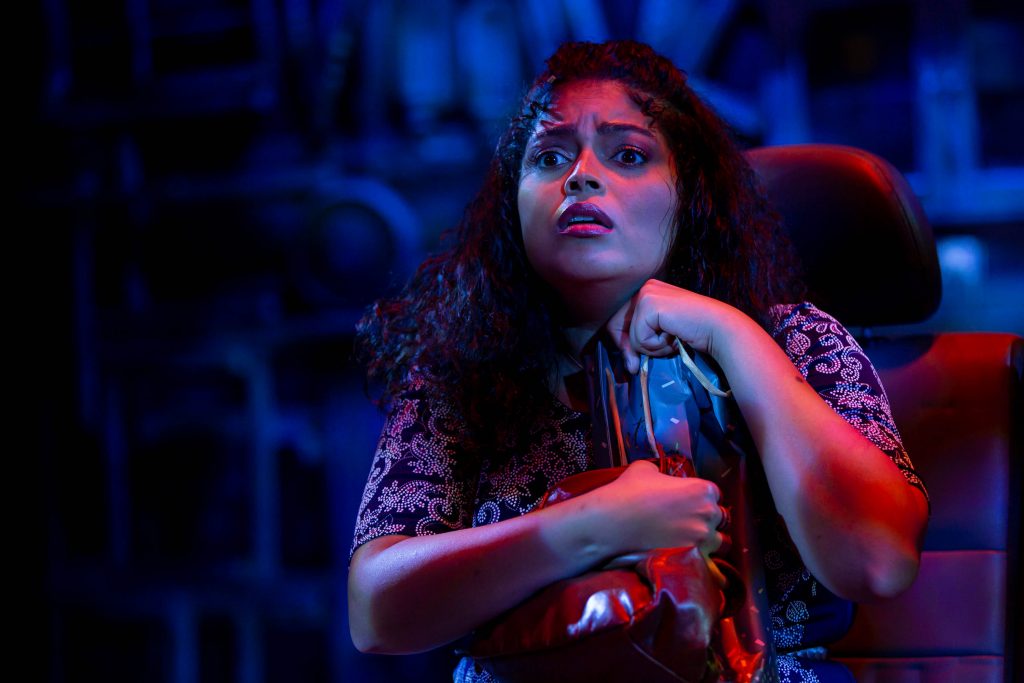
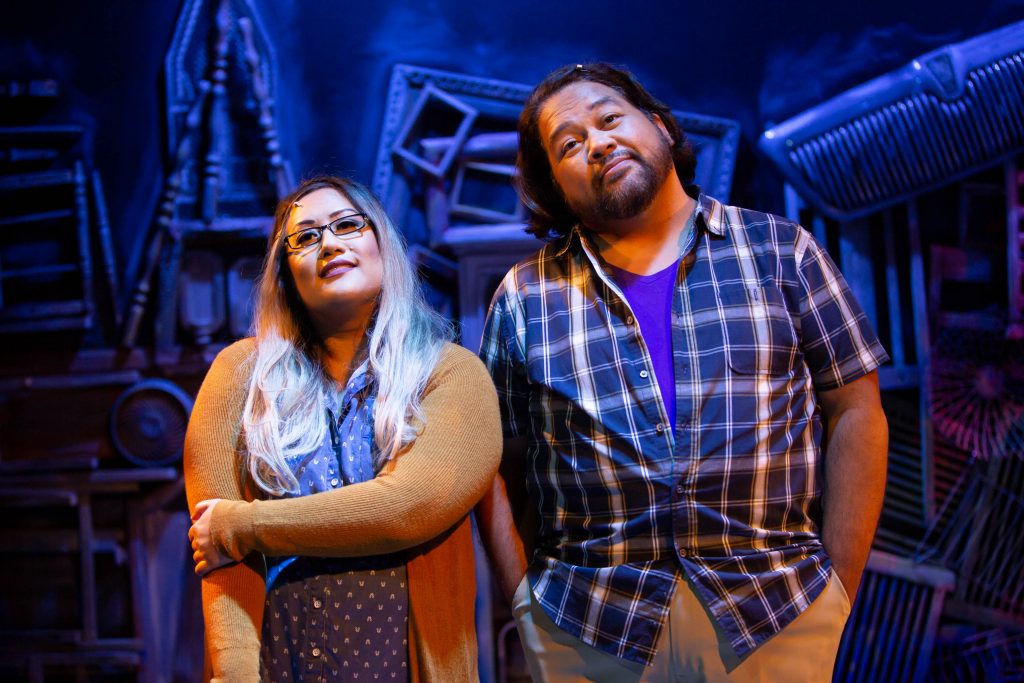

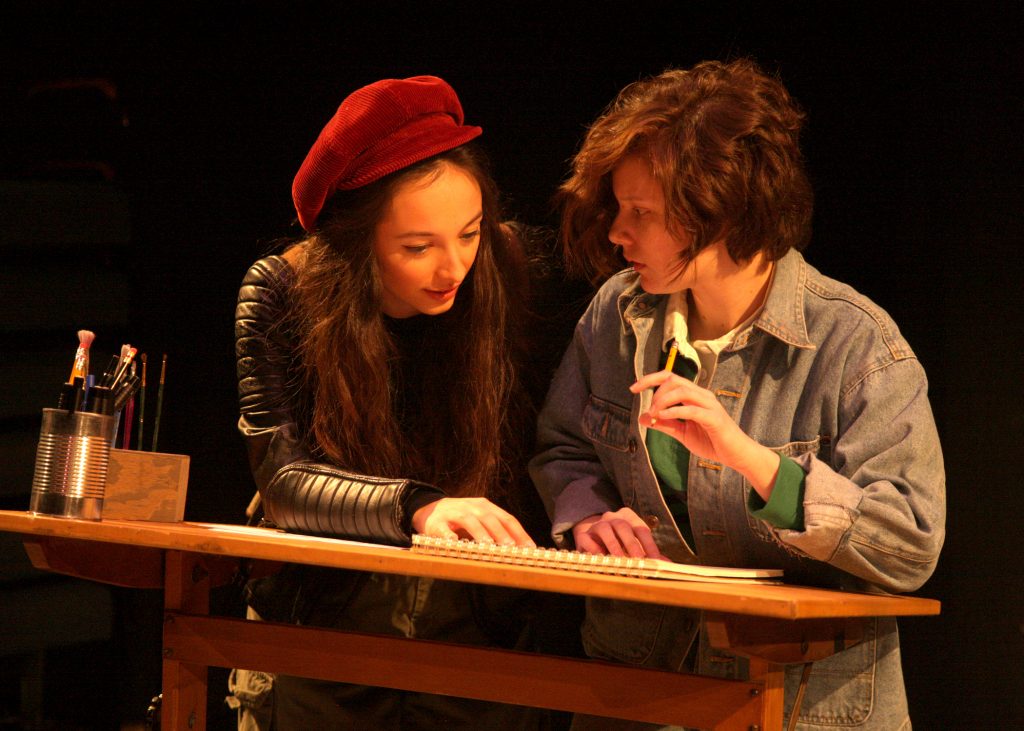
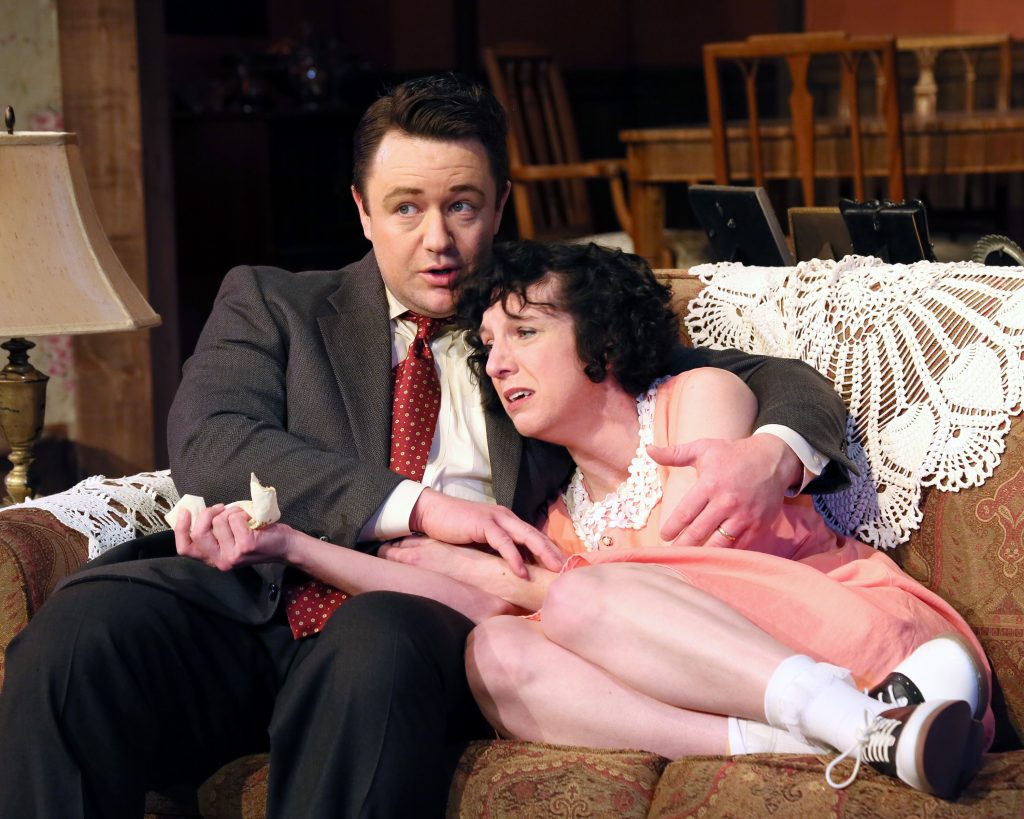

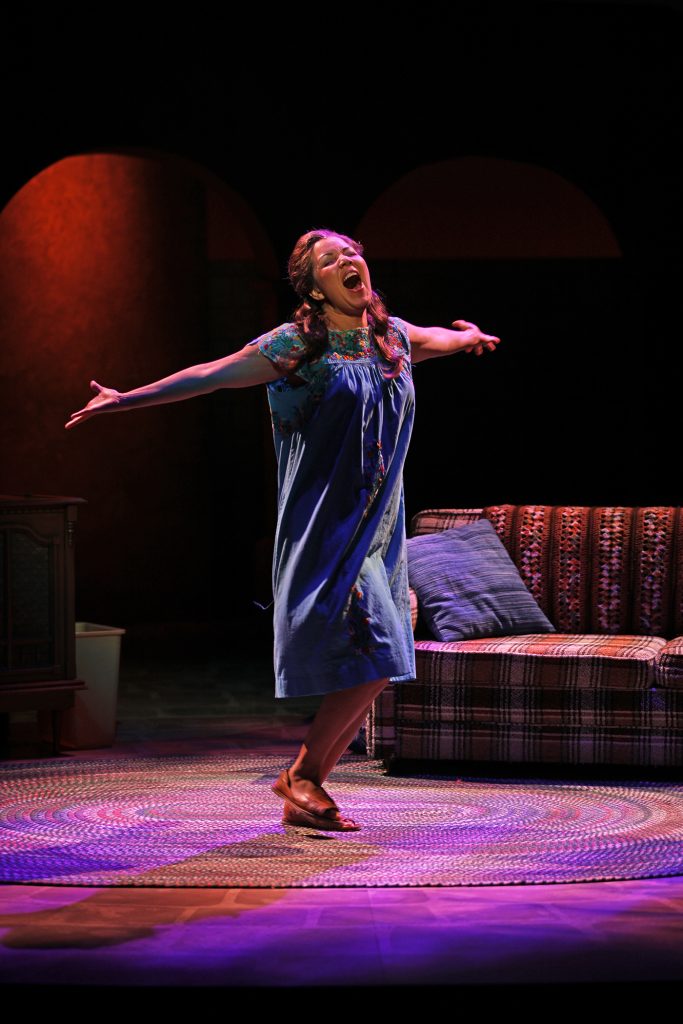
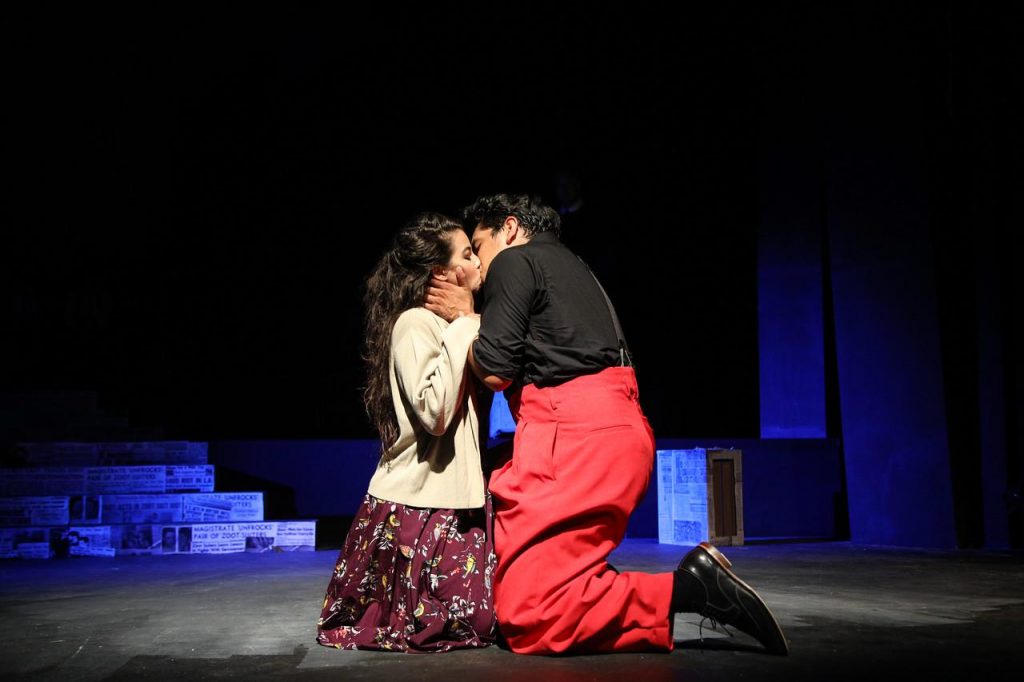
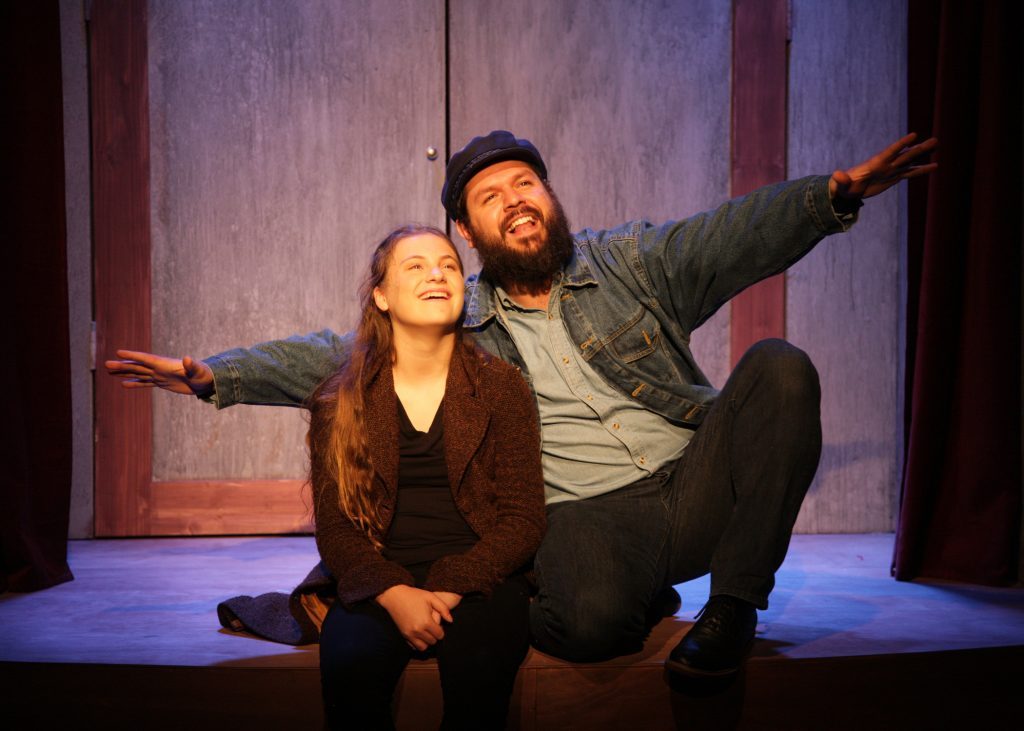
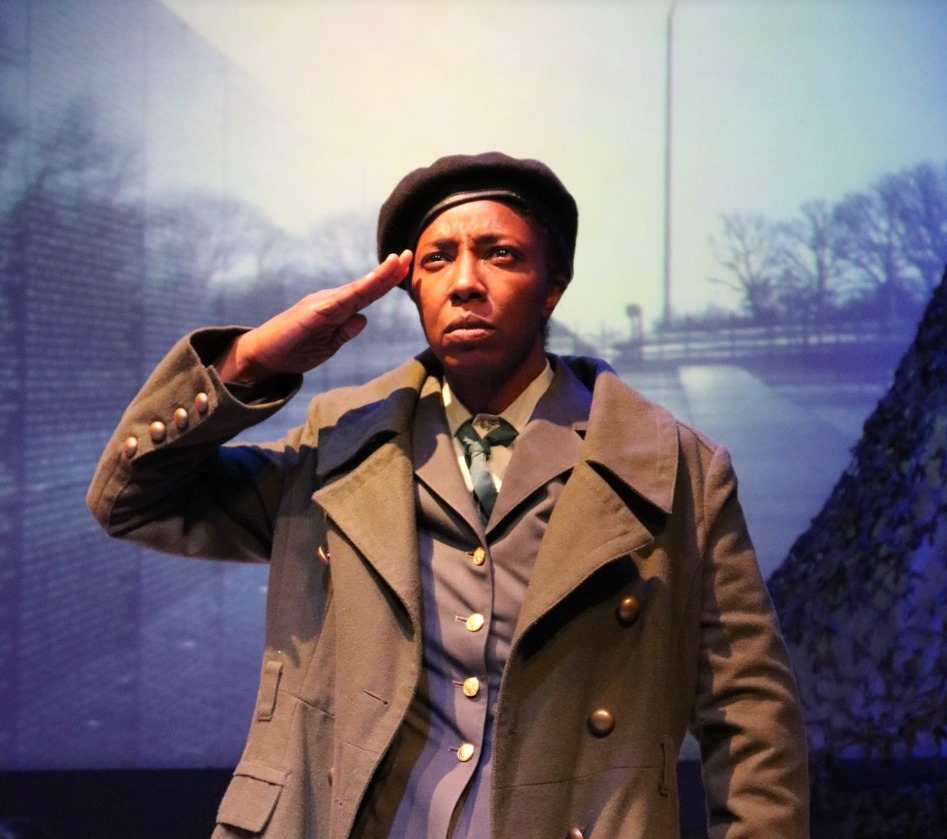
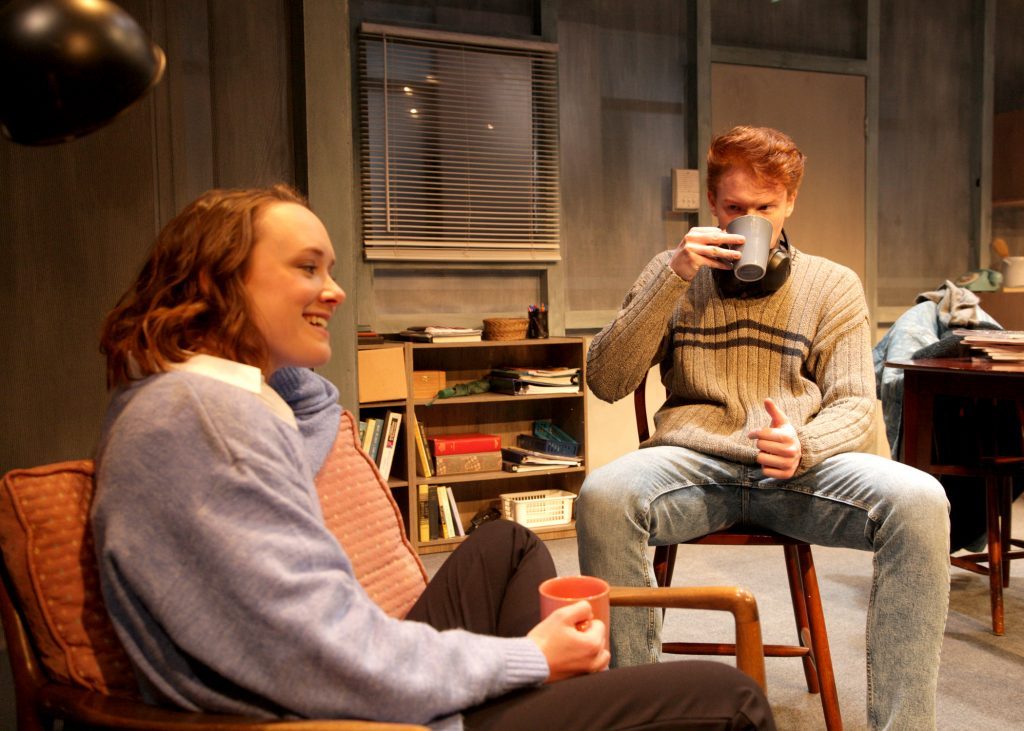
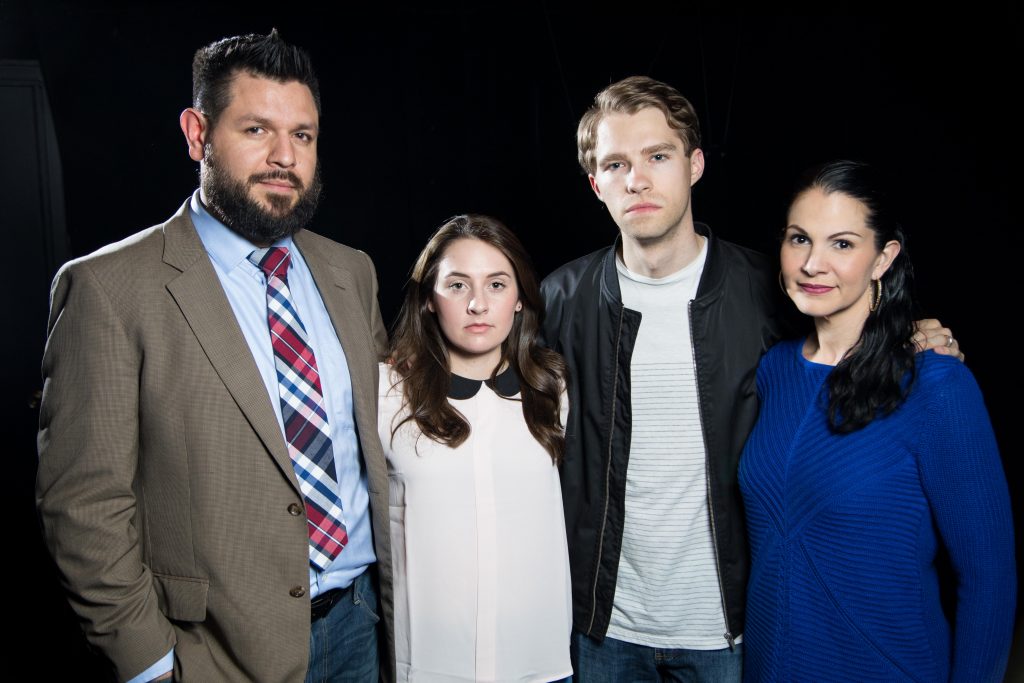
Thank you for the wonderful piece on Grace McLean by Zack Johnston!!